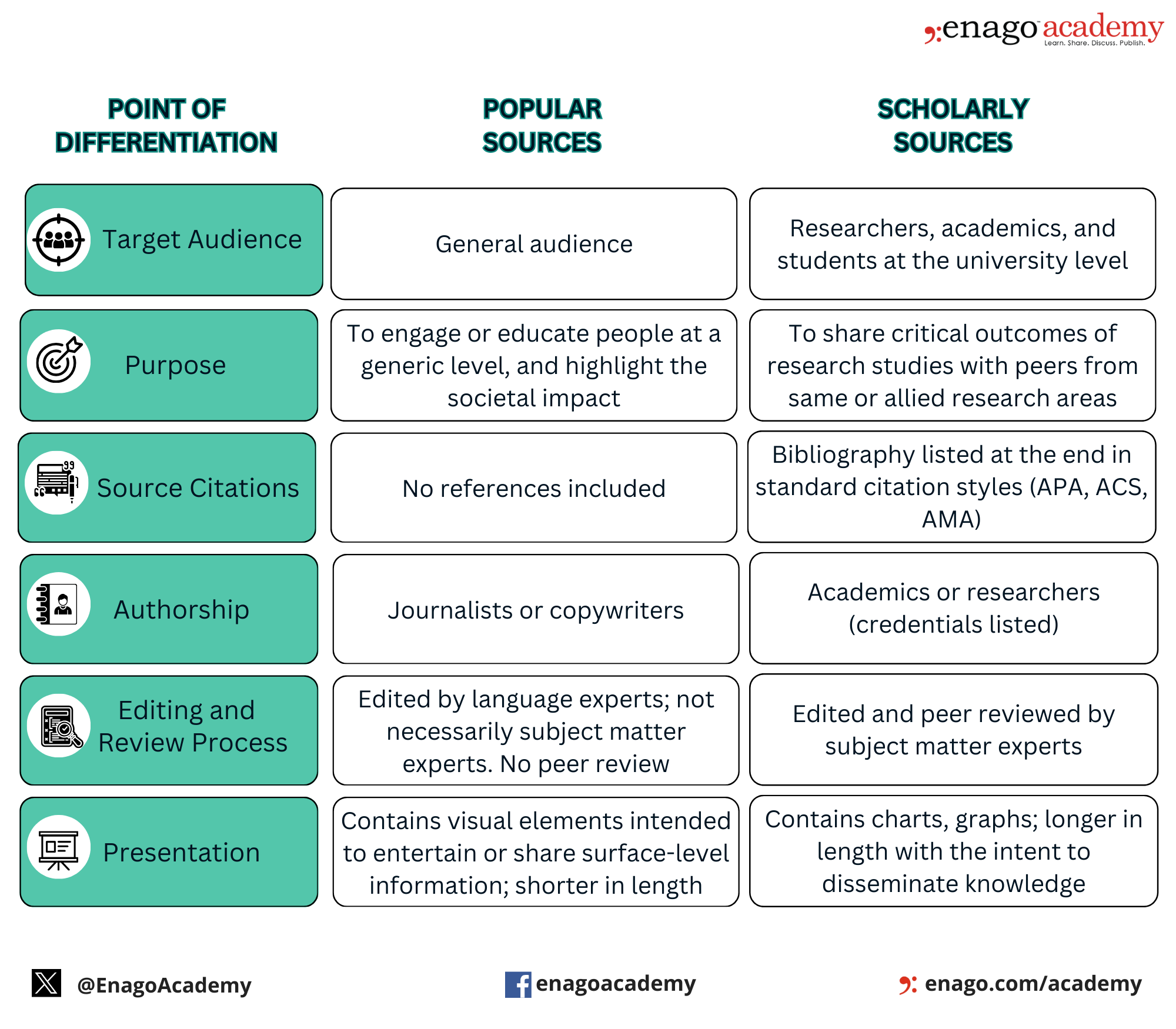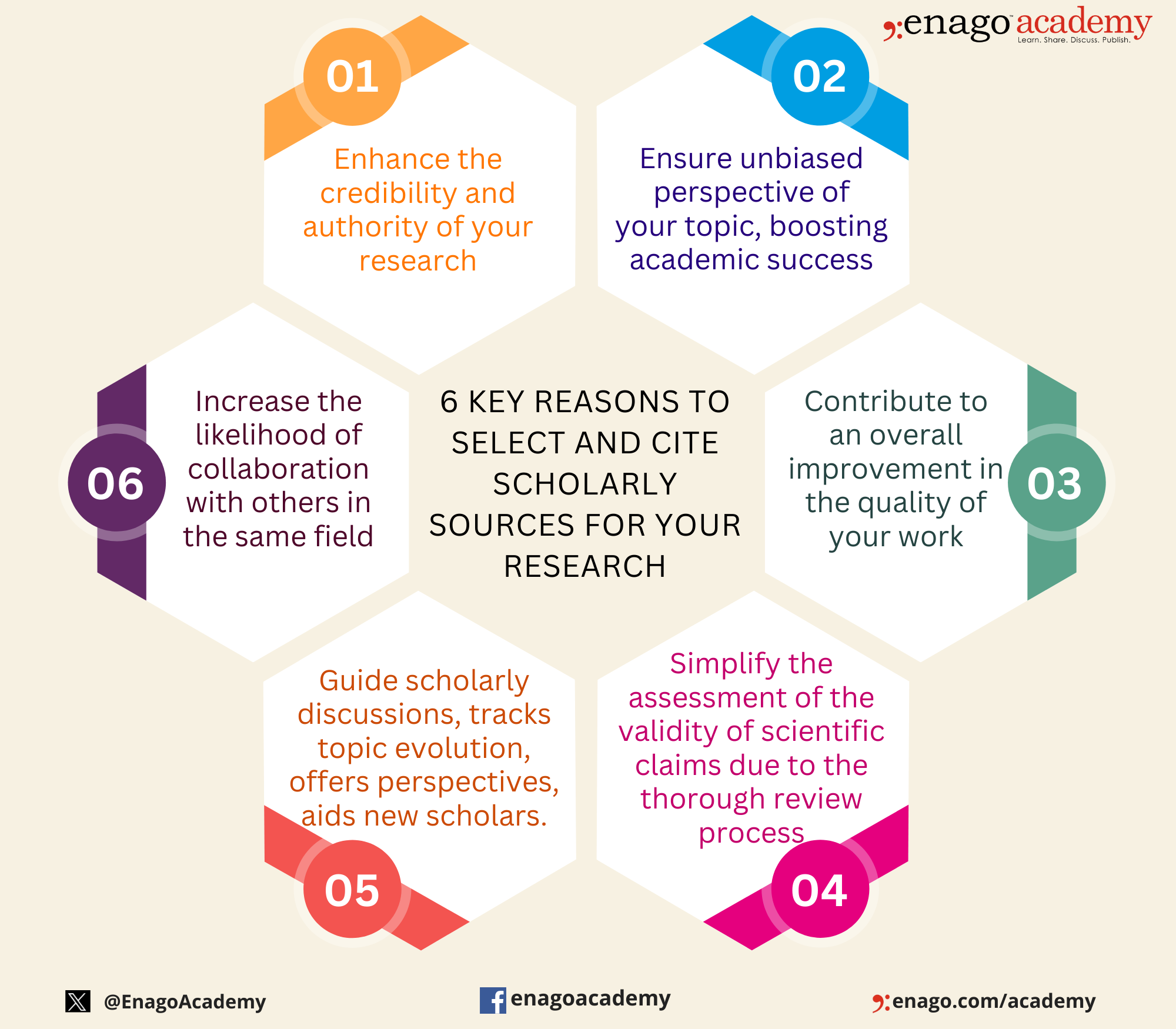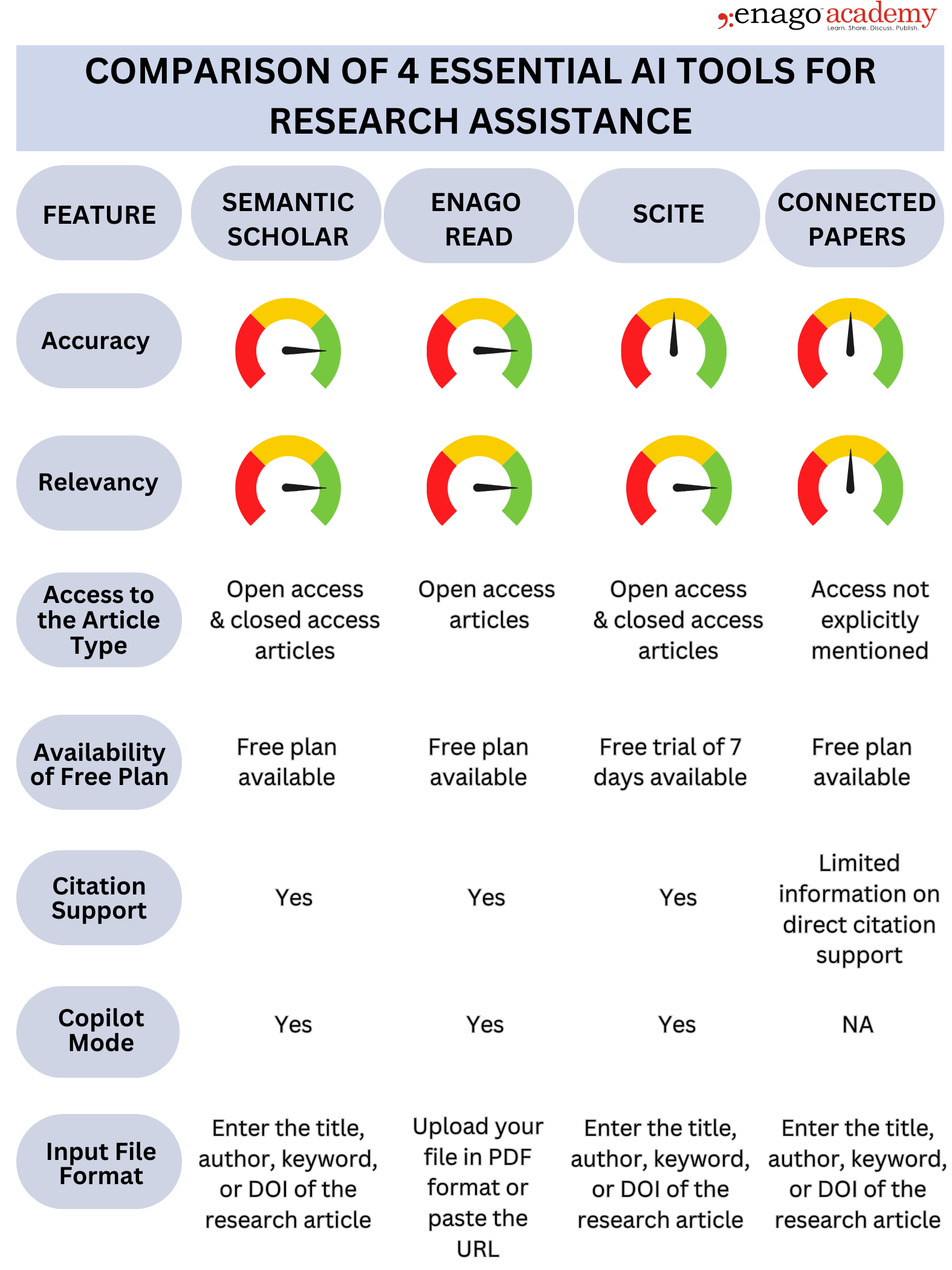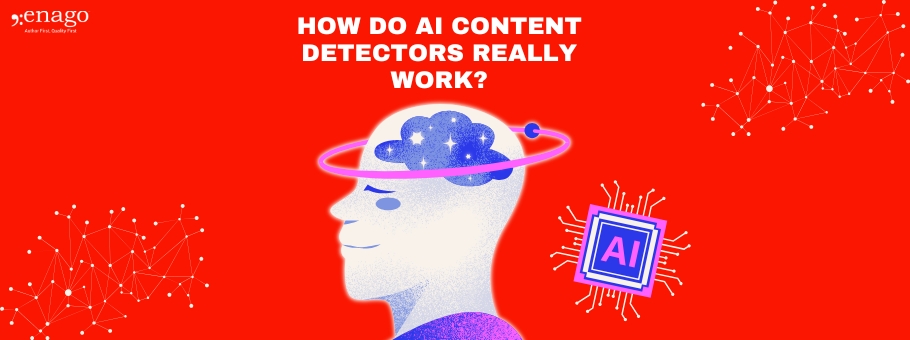AI Assistance in Academia for Searching Credible Scholarly Sources

The journey of academia is a grand quest for knowledge, more specifically an adventure to find the right information through credible sources, and that’s where scholarly sources walk in. As the name suggests, it simply means that such sources are written by scholars and experts of a specialized field. These sources are in the form of journal articles, books, conference publications, or websites. Such resources undergo a stringent peer-review process by a panel of subject matter experts. Thus, the findings presented are credible and refined. In contrast, popular sources, such as newspapers, magazines, and blogs, often lack the meticulous scrutiny of peer review and may prioritize approachability over technical accuracy.
Let’s explore the key points of difference between scholarly sources and popular sources:

Why Cite Scholarly Sources When Writing Your Research Paper?
Selecting scholarly sources is a strategic decision that affects your research outcome, as it builds the foundation of your academic work. It plays a crucial role for individuals at every stage of their academic journey, benefiting both early-career and established researchers. It allows scholars to actively participate in academic conversations by sharing valuable insights in their field, inspiring others in the research area to make advancements. Furthermore, for a university student, making their first stride in scholarly research, it enhances their knowledge and serves as a gateway to join the scholarly community.

Exploring Barriers in Scholarly Literature Search
Exploring today’s vast information landscape is like finding a needle in a haystack. This mirrors the challenges researchers face with the overwhelming number of scholarly articles in today’s digital age. According to the National Center for Science and Engineering Statistics, scientists publish nearly 3 million publications each year. A simple query search on platforms like Google Scholar can result in an overwhelming number of articles, posing a challenge to navigate through them and gain a comprehensive overview. Furthermore, such scholarly search platforms often fail to reveal new findings in a particular field as the system tends to favor highly cited, older articles.
Modern researchers and students face further complex challenges as science becomes more specialized, introducing peculiar jargon and keywords. This coupled with the multidisciplinary nature of research, can result in overlooking valuable findings from other fields due to specific jargon and knowledgebase constraints. Other challenges include identifying and selecting relevant resources due to the diverse formats in which information is presented (journal articles, preprints, conference posters, etc.), selecting which literature to choose with precision to prevent unintended plagiarism, and software limitations in managing literature sources in different formats.
Understanding the Use of AI Research Assistance Tools for Reliable Scholarly Sources
In this world of the internet, where a single click generates thousands of search results, AI research assistance tools can guide you through this chaos to the right scholarly source. These tools automate the process of identifying reliable papers, finding and summarizing relevant sections of a research paper, analyzing it to bridge knowledge gaps, and generating potential project ideas. Listed below are the pros and cons of such tools to help you make informed decisions when incorporating these tools into your research workflow:
Pros |
Cons |
| Time and resource efficiency | Concerns about the originality of AI-generated content |
| Elevated writing standards due to assistance in organizing data | Ethical concerns, especially regarding intellectual property rights |
| Higher-quality research insights | Lack of nuanced understanding by AI algorithms |
| Personalized assistance | Risk of hallucination |
4 Essential Research Assistance AI Tools
Currently, there are numerous AI-based tools with a wide range of capabilities for literature review assistance, each tailored to specific requirements. It is imperative to make an informed decision based on certain evaluation parameters that sets each of these tools apart. Simplifying this choice for you, we have compared 4 most useful AI research assistance tools to understand their distinctiveness:

Here is a comprehensive analysis of 4 most useful AI research assistance tools for a thorough understanding of their capabilities:
1. Semantic Scholar
Semantic scholar is an AI-powered search engine that:
- Conducts contextual analysis of papers.
- Offers advanced citation analysis and automates the process of identifying relevant research papers from its database of over 200 million papers for literature reviews.
- Bridges knowledge gaps and prompts project ideas.
2. Enago Read
Enago Read offers several features to enhance the experience of researchers for literature exploration and research process. They include:
- Summarizes key sections of papers, allowing for quick insight into the content of a research article.
- Supports inline attachments, ensuring a seamless organization of project-related files.
- Provides AI-powered suggestions to discover related research material and stay updated with relevant news from the large data repository of 170+ million research papers.
- Promotes enhanced collaboration and structured note-taking for better team communication, accelerating the process of literature review and critical reading.
- Streamlines the management of references, contributing to a more efficient and organized research workflow.
3. Scite
Scite is an AI research tool that:
- Provides services to enhance the research experience, including smart citations that support, contrast, and mention relevant content
- Presents citation contexts with accompanying text excerpts, allowing for a more in-depth understanding from over 181 million papers.
- Facilitates thorough literature reviews, making it a valuable tool for researchers engaging in systematic reviews and meta-analyses
4. Connected Papers
Connected Papers aids in identifying gaps in literature reviews in the following ways:
- Provides valuable insights for your scholarly venture
- Visualizes the research landscape, helping you identify key papers and trends
- Deepens your understanding of research relationships by exploring paper interconnections
While many AI research assistant tools help in identifying and storing scholarly sources, the real challenge is in efficiently connecting them. You must try and choose a platform that acts as an all-in-one solution. A platform that promotes your research needs, enabling you to execute literature analysis, collaborate with your team, identify research gaps, draft, and explore the journey of research.
Have you used any of the mentioned AI research assistance tools to find reliable scholarly sources and analyze them? Let us know how this article has contributed to your journey in finding the right research source for you. Also, don’t forget to share your preferred AI tool for academic research on Enago Academy’s Open Platform.
Frequently Asked Questions
Scholarly sources are academic sources written by subject-matter experts, and are subject to the process of peer review. This process ensures that the information in such sources is updated, scientifically accurate, and of excellent quality.
The examples of scholarly sources include journal articles, books, conference publications, dissertations, and even websites.
Citing sources is ethically important as it enhances the credibility of your work and prevents plagiarism. It also ensures that the credit is given where it is due.
Scholarly sources are important for academic research as they present accurate and updated information that is free of bias and is objective in nature.









